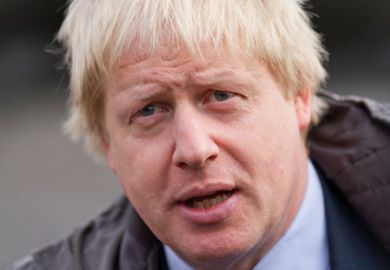The UK government has announced a new fast-track visa scheme for researchers, with no cap on the maximum that can apply, which will launch next month.
The Global Talent scheme – to be managed by UK Research and Innovation, not the Home Office – will replace the Exceptional Talent route, which was capped at 2,000 places a year.
It will come into effect on 20 February, just weeks after the UK leaves the European Union. Although the Exceptional Talent scheme never hit its cap, demand is likely to be much higher after Brexit because EU researchers are expected to need visas to work in the country after freedom of movement ends.
Ministers said the new scheme would double the number of eligible fellowships that enable applicants to be fast-tracked, would require individuals to hold a job offer before applying, and would not tie them to one specific job.
It will also provide an “accelerated path” to settled status for researchers who are endorsed on the route, and will provide an exemption from absences rules for researchers and dependants when they are required to go overseas for work-related purposes.
Boris Johnson, the prime minister, said that as the UK left the EU he wanted “to send a message that the UK is open to the most talented minds in the world, and stand ready to support them to turn their ideas into reality”.
Alongside the visa announcement, ministers said UKRI would simplify the process for applying for research grants, as part of a drive to reduce bureaucracy. UKRI will remove the “unnecessary” sections of grant applications requiring researchers to predict the impact of their work, the government said.
Ministers also announced a £300 million investment to fund “experimental and imaginative” mathematical sciences research. In a move that will be seen as demonstrating the influence of Dominic Cummings, the prime minister’s most senior adviser, about £60 million will be made available annually, doubling funding for new PhDs and increasing support for maths fellowships and research projects.
Venki Ramakrishnan, president of the Royal Society, described the new immigration scheme as “a welcome and attractive visa route” that would send out “a positive message that the UK is committed to remaining open to overseas science talent”.
“The government has listened to the research community, and this is an important first step in creating the visa system that we need for attracting global scientific talent – one that is welcoming, faster and more flexible, and takes into account the long-term aspirations of scientists and their families,” Professor Ramakrishnan said.
Julia Buckingham, president of Universities UK, said the new visa route “will help to ensure that universities can attract the brightest scientists and researchers to the UK with minimal barriers”.
Register to continue
Why register?
- Registration is free and only takes a moment
- Once registered, you can read 3 articles a month
- Sign up for our newsletter
Subscribe
Or subscribe for unlimited access to:
- Unlimited access to news, views, insights & reviews
- Digital editions
- Digital access to THE’s university and college rankings analysis
Already registered or a current subscriber?








